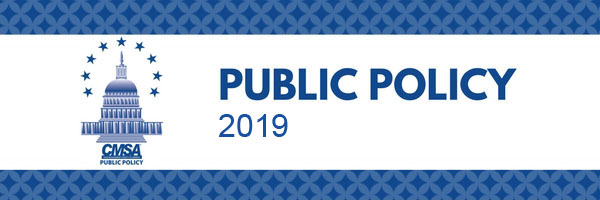 New protocols improve engagement, choice and continuity of care across hospital settings
The Centers for Medicare & Medicaid Services (CMS) on Sept. 26 issued a final rule that empowers patients preparing to move from acute care into post-acute care (PAC), a process called “discharge planning.” Today’s rule puts patients in the driver’s seat of their care transitions and improves quality by requiring hospitals to provide patients access to information about PAC provider choices, including performance on important quality measures and resource-use measures – including measures related to the number of pressure ulcers in a given facility, the proportion of falls that lead to injury, and the number of readmissions back to the hospital. The rule also advances CMS’s historic interoperability efforts by requiring the seamless exchange of patient information between healthcare settings, and ensuring that a patient’s healthcare information follows them after discharge from a hospital or PAC provider.

November 21, 2019 @ 11a CST
Featuring: Jose Santoro, MBA
We are living through very uncertain times in our country. In recent years, there has been a paradigm shift that leadership is not a privilege but a responsibility. We, as leaders, in our jobs, volunteerism and our families, must navigate the best way possible to lead the way forward in a changing landscape. Leadership is no longer just viewed as relations between leaders and subordinates but as a skill set. Today, the ability to lead is seen as a collection of skills that can be learned and improved. This presentation will review what people are looking for in a leader. We will discuss the various attributes of a leader that “inspire” and are “forward looking.” We will also discuss communication strategies that encourage innovation and creativity to solve problems, evoke change in a changing environment.
CMSA Members: Free
CEs: 1 Hour RN, 1 Hour CCM
 Great news: Sessions from the 2019 annual conference are now LIVE in the Educational Resource Library!
Access 44 up-to-date, relevant courses at your fingertips, offering a total of 44.5 CE hours nursing, 44.5 CE hours for CCMC, 6.75 Ethics CCM CE hours and 25 ASWB hours.
The best thing of all: If you are a CMSA member, all courses are absolutely free as part of your member benefits. Head to the ERL to explore and start earning your CEs today!
|
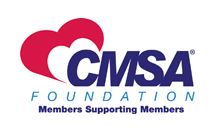
The holidays are just around the corner! Find out what the Foundation is doing during this season of giving. There is no gift too small. See how your holiday shopping can benefit the Foundation, too!
|
 Offering 1.0 hour of credit for CCMC, ACCME, AAPA, AANP, ACPE, and ANCC credits
Recent years have brought many updates in the world of asthma. But what does this mean for your patients? Stream this CE-accredited webcast to hear from the experts how you and your team can apply the latest advances in personalized asthma treatment and patient-centered care. Case-based content will allow you to exercise your problem-solving skills for complex patients with moderate-to-severe asthma while picking up some new pointers to ensure that your patients have access to the right therapy at the right time. This activity is provided by PRIME Education. There is no fee to participate. This activity is supported by an educational grant from Sanofi Genzyme and Regeneron Pharmaceuticals.
|

Through its representation, advocacy and education functions, the Case Management Society of America (CMSA) has been an organizing force setting the practice direction for the discipline of case management. CMSA promotes practice that is evidence-based and discourages the use of practices which, though popular or widely accepted, are either not beneficial or are contrary to the CMSA Standards of Practice for Case Management (SoP). While the increasing emphasis on care coordination by providers and payers has opened professional debate regarding the models being used in hospitals today, CMSA intends to clarify its position on hospital case management practice through this white paper initiative and urges hospital leaders to seek solutions that more effectively address the needs of our most vulnerable hospitalized patients.
This white paper has been in the works for almost two years through the work of a CMSA task force. The accumulation of their work is ready to share!
This white paper is FREE to Members.
Non-Members may purchase for $25.00
|
 CMSA and CCMC are working together to continue advancing professional case managers in their career paths. CMSA members receive a 20% discount when applying for the CCM, as well as upon renewal. Those who hold the CCM certification receive a 20% discount for CMSA membership. CMSA and CCMC are working together to continue advancing professional case managers in their career paths. CMSA members receive a 20% discount when applying for the CCM, as well as upon renewal. Those who hold the CCM certification receive a 20% discount for CMSA membership.
If you have questions about how to take advantage of your new member benefit, please contact CMSA Client Services at cmsa@cmsa.org or 501-225-2229.
|
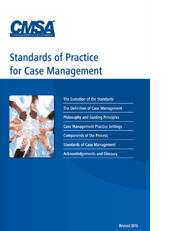
Download CMSA's Standards of Practice for Case Management, 2016 revision, which provides practice guidelines for the case management industry and its diverse stakeholders. The impetus for the 2016 revision of the Standards is the need to emphasize the professional nature of the practice and role of the case manager.
The 2016 Standards contain information about case management including an updated definition, practice settings, roles and responsibilities, case management process, philosophy and guiding principles, as well as the standards and how they are demonstrated.
Download Your Copy
|
 CMSA is pleased to announce a partnership with Bruce Berger, PhD, of Berger Consulting, LLC to bring you comMIt: Comprehensive Motivational Interviewing Training for Health Care Professionals at a discounted price. This 8-hour online program is centered around motivational interviewing, which is an evidence-based effective method for improving adherence to health behaviors. It was developed specifically for patients who are either ambivalent or resistant to change regarding these health behaviors.
CMSA has really listened to your requests for a practical motivational interviewing course targeted at healthcare professionals and their needs. We are thrilled to bring you an accredited course developed by the foremost authorities of MI in healthcare, Drs. Bruce Berger and William Villaume.
There is a limited number of seats for this program, accessible to CMSA members only, so you'll want to act soon! Click below to explore more information and register.
|
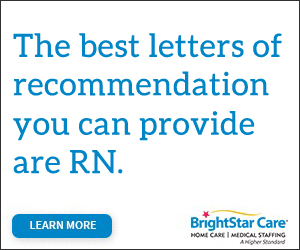
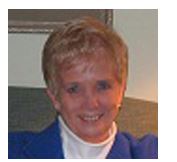 Pat Stricker, RN, MEd
Former SVP, Clinical Services
TCS Healthcare Technologies
There are so many changes in healthcare that it is hard to keep up with all the new treatments, therapies, medications, procedures, and medical equipment that are being developed. Many of these are the result of new technologies, but others are innovative ways to use simple, known techniques in a new way to make significant changes. This article will review some of the current and future technologies that are changing or will change the healthcare landscape. Hopefully you will find some that you were not aware of or some that might be helpful for some of you patients.
Now let’s take a look at what may be in store for us in the near future. The following is only a small list of some of the unbelievable advances and innovations that are being worked on. As technology and computerization continue to advance, there will be more amazing treatments and procedures available.
|
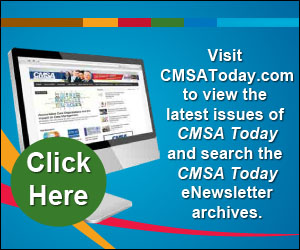
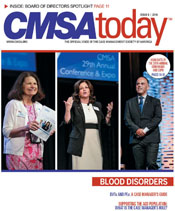
by Jose Alejandro, PhD, RN-BC, MBA, CCM, FACHE, FAAN
In this issue of CMSA Today, we explore blood and bleeding disorders and their impact on case management professional practice. The American Society of Hematology (2019) notes that “millions of Americans are affected by blood disorders each year” and that these blood disorders include clotting and bleeding disorders, anemia, sickle cell disease and blood cancers. The 2016 emergency department statistics from the Centers for Disease Control and Prevention indicate that there were more than 695,000 emergency department visits for diseases of the blood (Rui, Kang & Ashman, 2016). Many of these visits were associated with “super users,” patients who had more than six emergency department visits in a year (Simpson, et al., 2017).
Case management professionals are key stakeholders who should be included on the inter-disciplinary care team in the emergency department setting and other healthcare entry points. There is a significant opportunity to improve the effectiveness and efficiency of emergency department services by addressing the complex health and social needs of individuals at the point of entry. Several organizations have demonstrated the effectiveness of early intervention to address social determinants that limit access to care in more appropriate settings.
|
 The Journal of Medical Internet Research recently published an article about the www.ibd.care app, developed by PRIME Education in partnership with AMCP and CMSA, and supported through an education grant from Takeda.This article examines the utility of mobile health apps as part of functional IBD digital health solutions. Read the full article at the link!
|
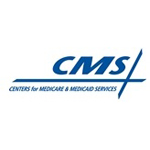
On November 15, 2019, the Centers for Medicare & Medicaid Services (CMS) finalized policies that follow directives in President Trump’s Executive Order, entitled “Improving Price and Quality Transparency in American Healthcare to Put Patients First,” that lay the foundation for a patient-driven healthcare system by making prices for items and services provided by all hospitals in the United States more transparent for patients so that they can be more informed about what they might pay for hospital items and services.
The policies in the final rule will further advance the agency’s commitment to increasing price transparency. It includes requirements that would apply to each hospital operating in the United States. This fact sheet discusses the provisions of the final rule (CMS-1717-F2), which can be downloaded from the Federal Register at: https://www.hhs.gov/sites/default/files/cms-1717-f2.pdf.
Source: Centers for Medicare and Medicaid Services
|
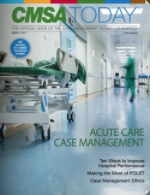 CMSA Today™—the official magazine of the Case Management Society of America—is the magazine for case managers. We are committed to providing case management knowledge, perspectives and news to case managers in all sectors of the profession. To facilitate that mission, we accept and consider: CMSA Today™—the official magazine of the Case Management Society of America—is the magazine for case managers. We are committed to providing case management knowledge, perspectives and news to case managers in all sectors of the profession. To facilitate that mission, we accept and consider:
- Original articles written by case managers of all healthcare backgrounds;
- Expertly prepared articles from professional writers—whether medical writers or experienced generalists—on case management topics;
- Feature articles, column material, and news about case management trends and issues, as well as about CMSA chapters and their activities;
- and personal, member-generated items considered nontraditional for a professional-association publication as poems, remembrances and similar sorts of content.
Consider sharing your knowledge by writing and submitting an article! Click below to learn more.
Learn More
|
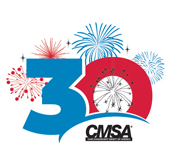 Join us for CMSA's 30th Annual Conference & Expo, "30 Years of Care Transitions Across the Full Continuum," next July in Boston, MA! Registration is open now with early bird pricing; take advantage of the lowest rate of the year, plus discounts and payment plan options!
Get your colleagues together and register soon!
|
|
| |
|











 CMSA Today
CMSA Today